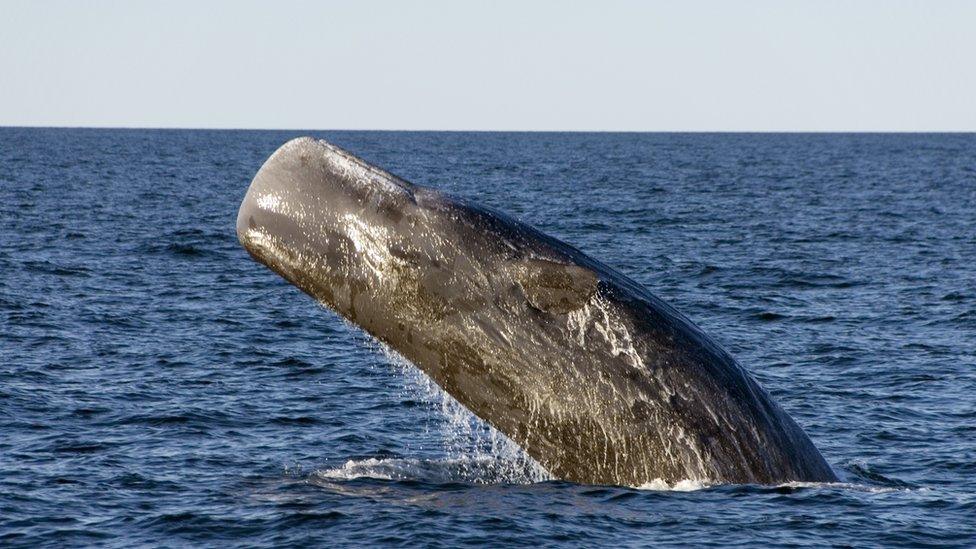Hunstanton whale: Guards protect stranded carcass
- Published
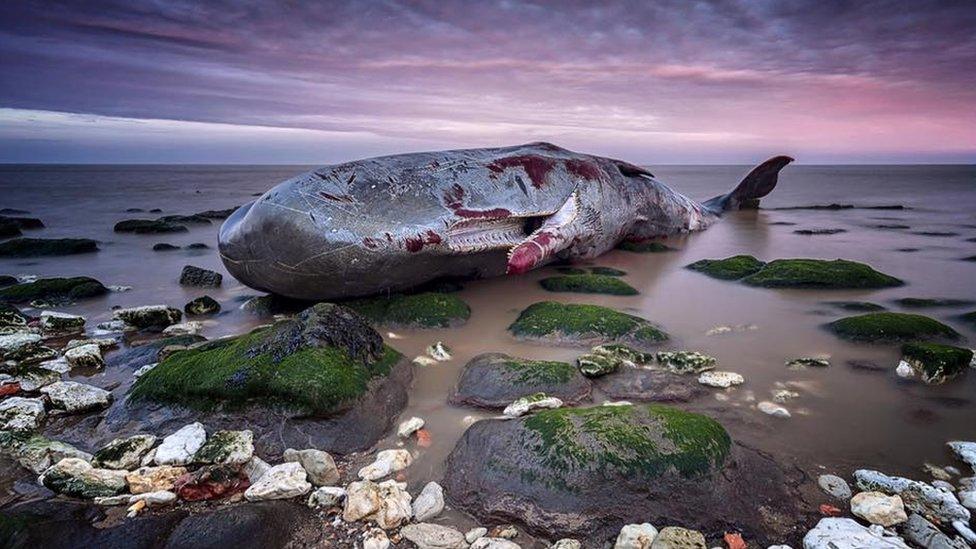
Work is due to begin later to cut up the carcass and carry it away for cremation
Security guards have been employed to prevent people from "scavenging" from the carcass of a sperm whale that got stranded on a Norfolk beach.
The 30ft (9.1m) male sperm whale died at Hunstanton on Friday after a rescue attempt failed.
It is thought to be from the same pod as three whales washed up in Skegness.
King's Lynn and West Norfolk Borough Council said the guards would stop people touching the whale or removing parts from the body.
The carcass is to be cut up and removed from the beach.
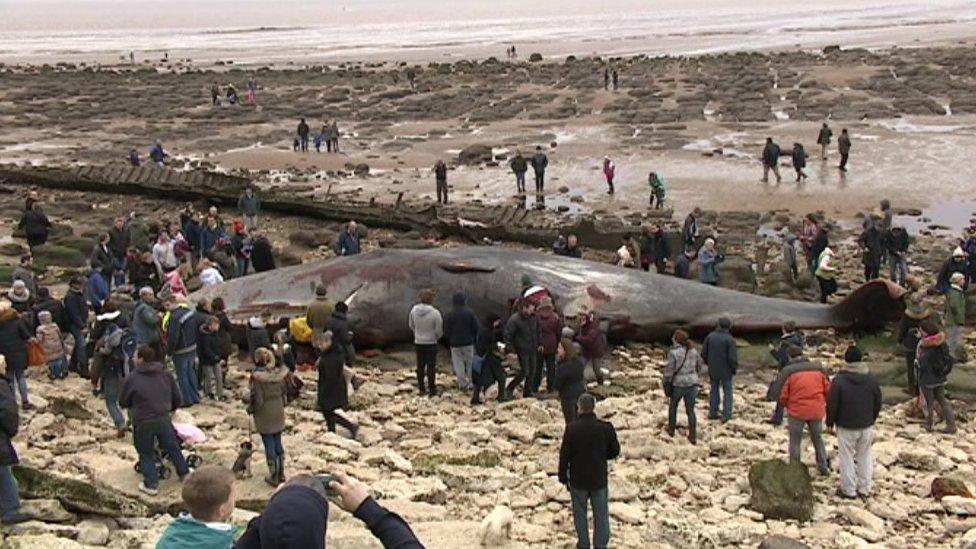
Hundreds of people took a look at the whale over the weekend
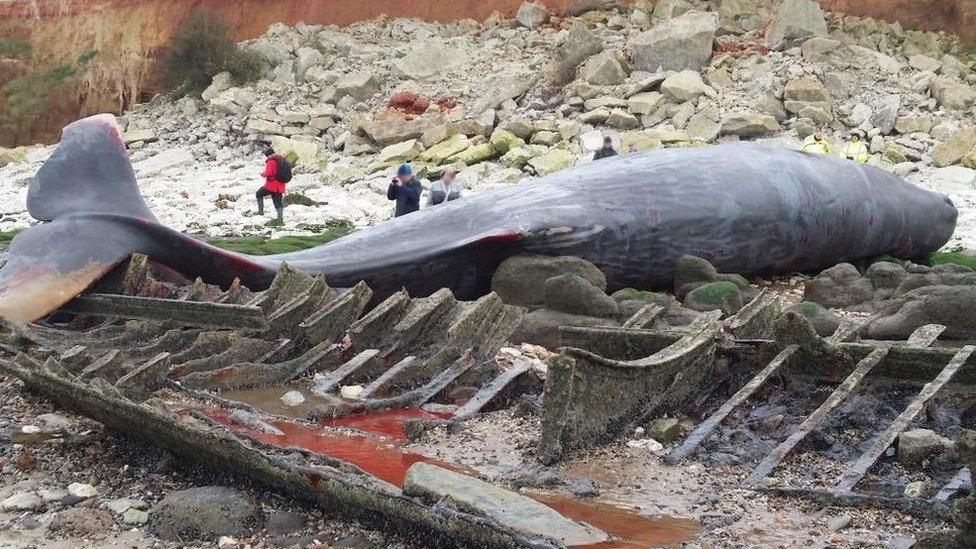
The whale died at about 23:00 GMT on Friday
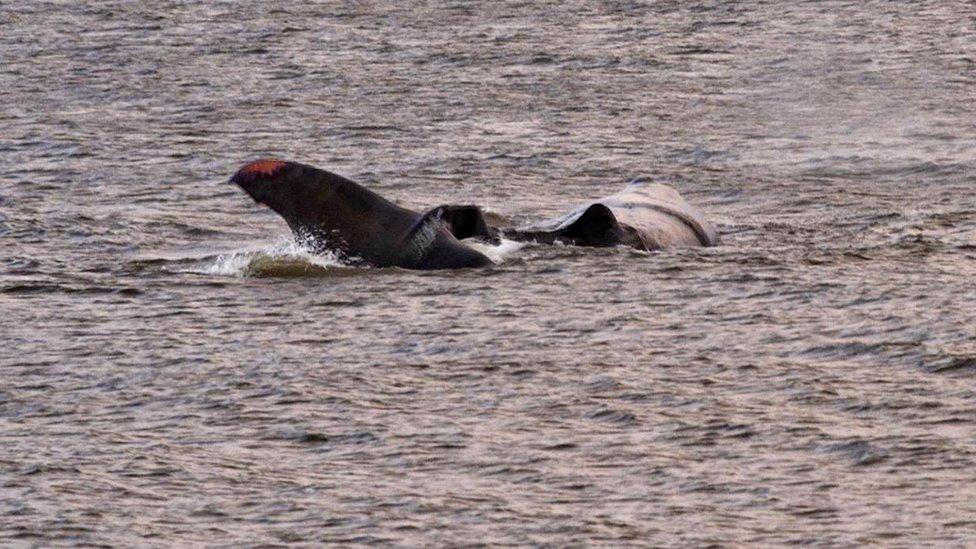
It was one of a group of up to five whales seen in the shallow water north of Hunstanton
At the weekend crowds stood close to the whale at Hunstanton, with some touching and stroking it.
Brian Long, from the borough council, took his son to see it on Sunday.
"It can nurture an understanding that you just don't get from seeing a picture in a book or on the television," he said.
"[But] we don't want to see people scavenging, as has happened before."
The council will employ a contractor that specialises in the disposal of animals to remove the body, which is estimated to weigh about 30 tonnes.
"Because of its size and weight, it needs to be removed section by section and it's not pleasant at all," said Mr Long.
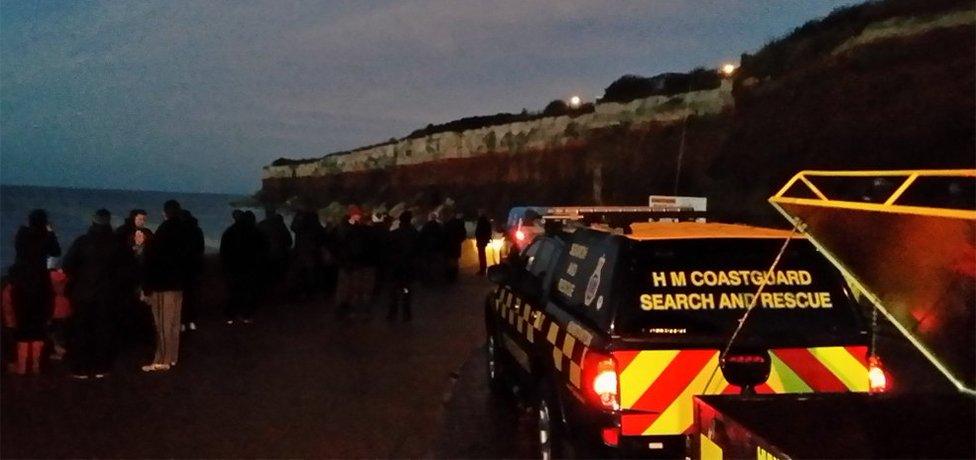
Crowds gathered as coastguards and volunteers try to help the stranded whale in darkness
Scientists from the Cetacean Strandings Investigation Programme investigate all whale, dolphin and porpoise strandings in the UK and have taken samples from the carcass.
Programme organiser Rob Deaville said they will test the skin, blubber, teeth and blood to ascertain cause of death.
This then determines how the body is disposed of, either by incineration or disposal in landfill.
Sperm whale washed ashore at Hunstanton attracts sightseers
The council said it had consulted with Public Health England and was warning people not to touch the whale or allow dogs to come into contact with it.
Water quality may have been affected, so shellfish should not be collected and eaten and anyone taking part in water sports should seek medical advice if they feel unwell.
Sperm whales are deep sea mammals and do not belong in the shallow waters of the North Sea.
About five or six sperm whales are stranded in the UK each year.
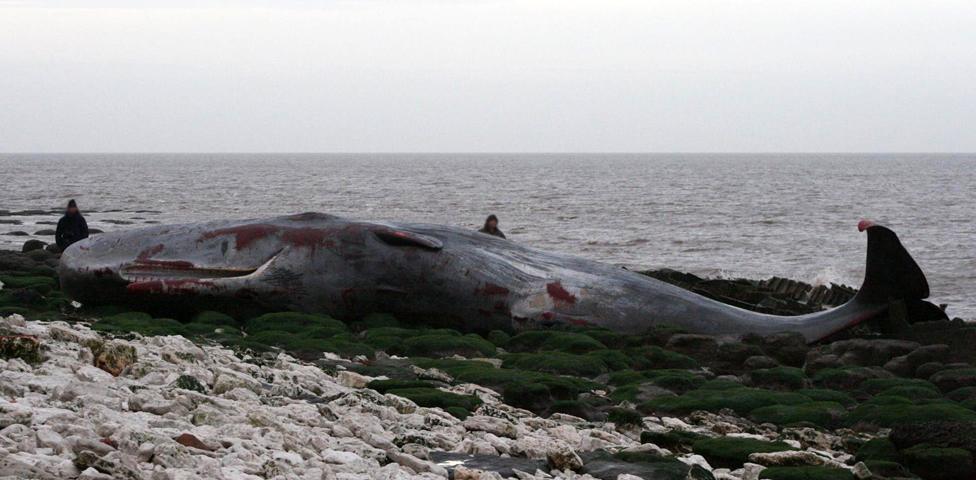
Sperm whales feed on deep water squid not found in the North Sea
- Published25 January 2016
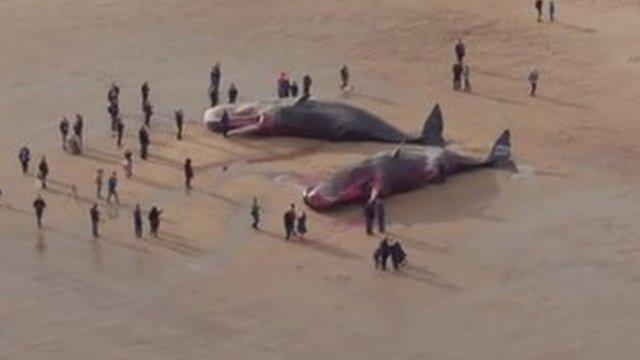
- Published23 January 2016
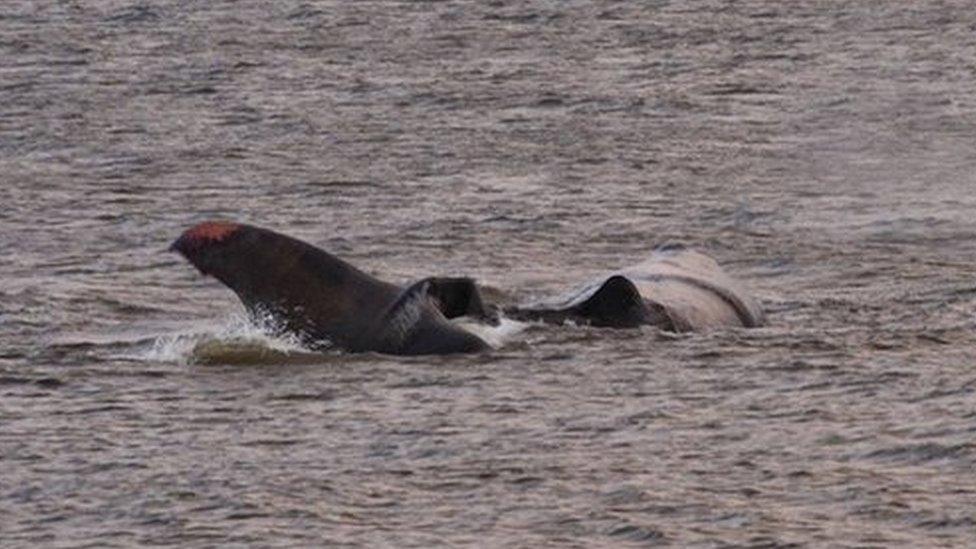
- Published22 January 2016
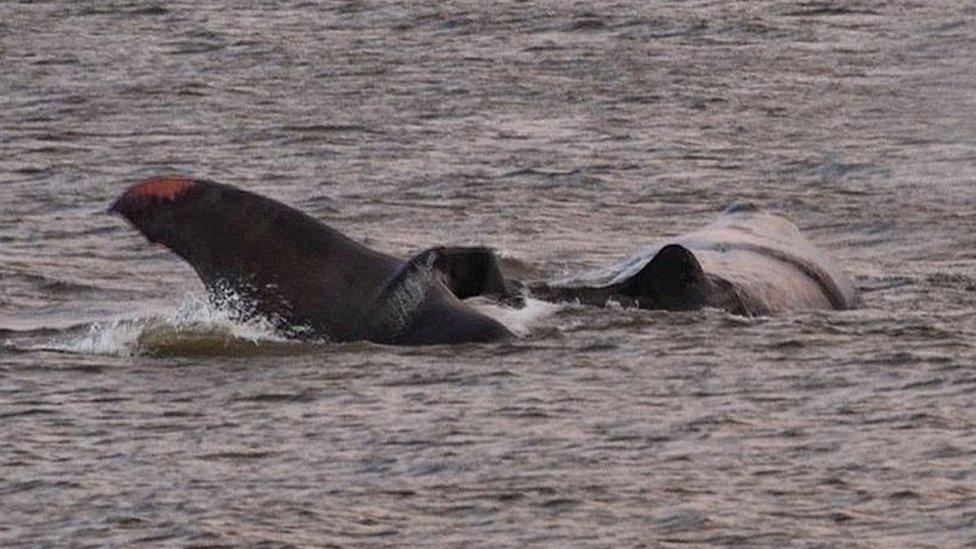
- Published18 September 2015
